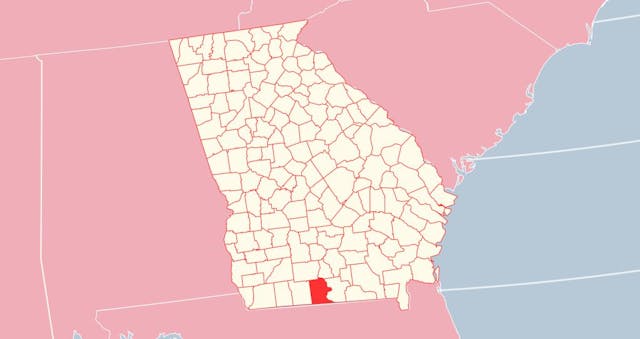Rehabs in Brooks
Brooks is located in the US state of Georgia, on the southern border with Florida. The county’s population was 16,243 as of the 2010 statistics. Quitman is the province’s seat. Brooks was created in 1858 from parts of Lowndes and Thomas provinces by the Georgia General Assembly’s act.
As of the mortality data from the Centers for Disease Control and Prevention, the death rate from opioids in Brooks county has increased by 1,125% during 2011-2017. These substances are constantly being illegally produced and spread alongside or mixed with illegal drugs like heroin.
Additionally, many opioid-related deaths involve more than one drug type. Hence, there was a need to operate special drug and alcohol rehabs in Brooks county.
Main Treatment Options
Before deciding which facility to choose to stay in during the whole recovery process, you should consider the available rehab options. Below we represent the main remedy courses each with its unique characteristics.
Inpatient
In inpatient clinics, the morning starts early. Patients start the day with a healthy group breakfast. Every drug/alcohol treatment facility is different but mostly they use a variation of the 12-step remedy program. After eating, people can either attend arranged yoga classes or opt for meditation. These techniques are organized to integrate healthy activities into the recovering person’s daily routine.
After, there comes time for group counseling sessions. Experienced counselors encourage all addicts to contribute. Sessions may be intense as the counselor attempts to define treatment courses and the factors that led to alcohol/drug use. The main goal of these daily group courses is to determine the problematic patterns of attitude that led individuals to addiction.
Outpatient
Evaluation and Intake
Before addicts enter outpatient drug/alcohol rehab, one or more addiction experts will interview the applicant and do an evaluation. To help define the intensity of the dependence the addict’s medical report will be examined and discussed and a physical exam and substance testing may be needed during this intake evaluation. Also, the experts will try to define existing mental problems.
During an evaluation, many patients also undergo detox and medically assisted withdrawal. Most individuals are claimed to pass inpatient detoxification and withdrawal therapy before they enter outpatient rehabs.
Therapy and Treatment
Psychotherapy is the high point of all outpatient substance programs. All patients are to attend individual and group therapy courses. Experienced counselors and psychotherapists control these courses. Also, addicts are encouraged to take part in family therapies.
Medication
To help relieve aftereffects and diminish cravings, some patients get prescription medications. Outpatient staff monitors these medications carefully and have it to be taken as prescribed.
Educational Classes
Another important part of rehab is education. At outpatient facilities, patients learn how toxic substances affect the brain and the body. Also, addicts learn how to prevent relapse and after the completion of the treatment course, they develop strategies for a sober life.
Supportive Services
People begin to build a system of support services. Support may be in various forms, but the most probably to help are other recovering addicts and cures recommended by counselors. In most outpatient clinics there are group therapies offered for as long as the person wishes to visit.
Aftercare
Before patients leave the program, they have to develop a written relapse prevention plan. Commitments to meet constantly with aftercare programs in the community are to be included as a part of that prevention plan. As there are aftercare plans in every US community, this may be the best support tool.
Luxury Centers
In every county, there are centers with upscale services that are affordable for not all residents. Yet, people prefer getting cured in such clinics that have a variety of expensive amenities. Among the privileges of those facilities are:
Private housing
Personalized treatment
High staff-to-client ratio
Privacy as a priority
Relaxing atmosphere
Nutritious and delicious chef-prepared cuisine
Availability of executive programs
Mcleod Gaston Inc Dba Bishop Foundation
This is an upscale rehabilitation center. The luxury therapies include:
Substance use remedy
Discharge planning
Outpatient plan (intensive, regular)
Peer/mentoring support
Social skills development
Remedy for non-substance use dependence problem
Mental health services
Location: 102 North Madison Street, Quitman, GA 31643 in Brooks County

